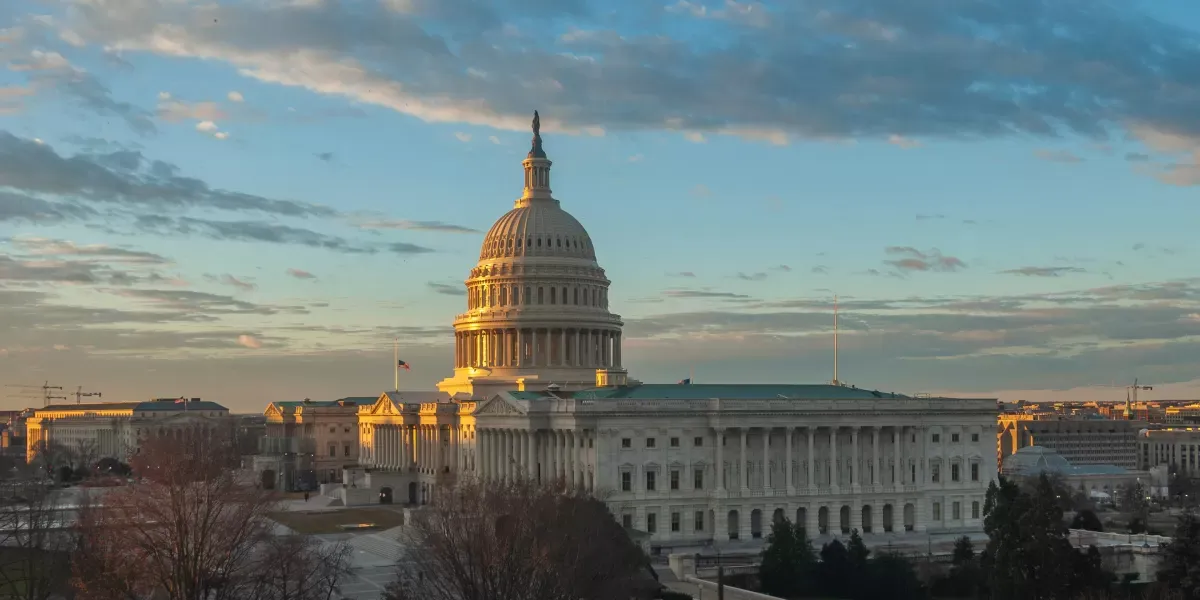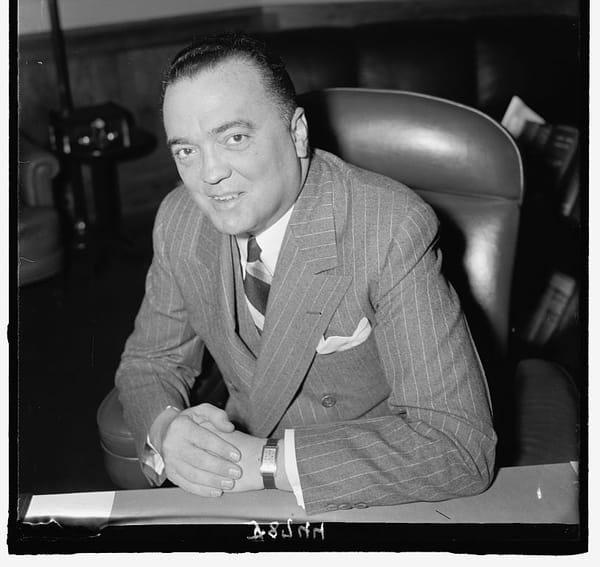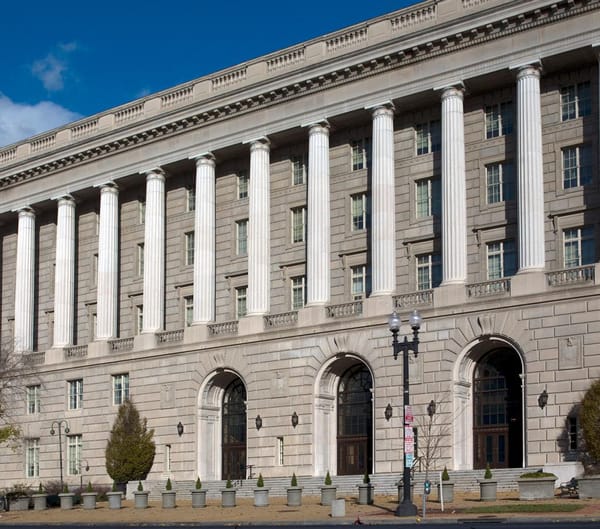Congress at 235
Conceived as the voice and protector of the people, it has instead too frequently been an instrument of repression

On this day 235 years ago, the first Congress of the newly created Republic of the United States of America convened in New York City. Its first task was also its most contentious: deciding whether to amend the new constitution to include, among other things, a bill of rights.
In his excellent 2016 book, The First Congress: How James Madison, George Washington, and a Group of Extraordinary Men Invented the Government, Fergus Bordewich noted that the Bill of Rights did not "acquire the sacred aura that surrounds it today until well into the twentieth century, a development that owes less to the foresight of the Founding Fathers than to the determination of morally aroused citizens and the willingness of the modern judiciary to challenge discriminatory and oppressive state legislatures." (pp. 140-141)
As Bordewich's book shows clearly and in detail, the First Congress spent most of its time on clarifying the structure and mechanics of the new government; federal protection of individual rights was largely the cause of Antifederalist and one prominent Federalist--Virginia's James Madison. In fact, Madison would only become a reluctant convert to the need for what we know today as the Bill of Rights because of the forceful arguments of another Virginian and staunch Antifederalist, Richard Henry Lee.
The final set of amendments agreed upon by the House and Senate, and particularly those focused on the protection of individual rights against overweening state power, were not as strong or clear as the Antifederalists sought. As Bordewich observed, "It would be left to the courts and future generations to interpret and give force to the minimalist language of the amendments." (p. 139)
It was the fear of a too-powerful central government, and especially a strong executive branch, that animated both political factions involved in drafting the Constitution and its subsequent initial amendments. Yet, on too many occasions over the past two-plus centuries, it is the Congress that has been the oppressor of those it was designed to serve, instead of being their protector and vindicator against executive branch assaults on the rights of individuals and organizations.
It began less then 10 years after the Bill of Rights was added to the new constitution, via the now-infamous Alien & Sedition Acts, which Federalists used to punish and impoverish their political opponents. The subsequent public blowback against and the eventual repeal of the legislation and the political repudiation of the Federalists eventually caused the latter's political extinction. It was a conflict that foreshadowed others, the most morally and politically consequential one being slavery.
The failure to expunge the institution of slavery from the national body politic at the founding of the country would be compounded in the years after the Constitution's ratification, culminating in the infamous Compromise of 1850, which included the odious Fugitive Slave Act. The legislation simply delayed the inevitable battlefield confrontation over whether the American republican would eradicate slavery and remain one nation or split into two.
The Union victory ensured the territorial integrity of the United States, but the internal war over race and rights continued unabated for another hundred years. Congressional passage of the Voting Rights Act and the Civil Rights Act during Lyndon Johnson's administration demonstrated that some level of coercive federal government power was required to ensure equal rights for Blacks living in a number of former Confederate states.
And in the century between the end of the Civil War and the legislative triumphs of the civil rights movement, Congress would frequently enact legislation--in peace and in wartime--that eviscerated the rights of individuals and entire groups.
The Anarchist Exclusion Act of 1903, enacted in the aftermath of the assassination of President William McKinley, sought to exclude from the United States foreign born anarchists, based on the fanciful notion that an immigration restriction could stop the spread of an idea.
America's entry into World War I saw the passage of the Espionage Act, the Food and Fuel Control Act, the Trading with the Enemy Act, and the Sedition Act--all of which were used primarily against persons of German heritage, as well as those opposed to the country's participation in the war in Europe. There were hundreds of Espionage Act prosecutions during the war, nearly all targeting those simply opposed to the nation's involvement in it.
Among the most infamous cases was the one against the first socialist elected to Congress, Victor Berger. His newspaper, The Milwaukee Leader, was banned from the mail system as well. All of this happened in violation of the letter of the First Amendment and was made possible by Congressional cowardice in enacting the Espionage Act, the baneful influence of which continues to this day, as chronicled in Ralph Engelman and Carey Shenkman's book, A Century of Repression: The Espionage Act and Freedom of the Press.
At its worst, Congress directly became the instrument of political repression.
The Overman Committee, the McCormack-Dickstein Committee, the House Committee on Un-American Activities (HUAC), the Senate Internal Security Subcommittee (SISS)--each subpoenaed, interrogated, and humiliated hundreds of individuals and groups in the name of "internal security" or "national security." HUAC and SISS operated for literally decades, their demise only coming after the revelations of massive federal government spying on Americans emerged between 1971 and 1975. It became clear that the real domestic threats to liberty originated not from communist states like the Soviet Union and China, but from the federal government, including entities like HUAC and SISS.
The federal spying and related programs that were exposed by multiple House and Senate committees in the early to mid-1970s represented a stark and badly needed departure from the past practice of the Congress either acquiescing to or actively participating with the Executive branch in targeting individual Americans or organizations for politically disfavored views. It was a Congressional oversight interregnum that would not last more than a decade.
The creation of the House Permanent Select Committee on Intelligence (HPSCI) and Senate Select Committee on Intelligence (SSCI) was supposed to be a new safeguard against COINTELPRO-like Executive branch internal security insanity. But by the eve of al Qaeda's terrorist attacks on the United States on September 11, 2001, HPSCI and SSCI had largely devolved into cheerleaders, rather than overseers, of the federal intelligence components they were created to police and control.
This became clear with the October 2001 passage of the deceptively named USA PATRIOT Act, which unleashed the FBI and NSA to engage in a range of investigative and intelligence practices previously seen as incompatible with a functioning democratic republic. When passed, the PATRIOT Act had 16 provisions with expiration dates (known in legislative terminology as "sunsets"); today, that number is zero. So-called "sneak and peak" searches are now the permanent law of the land, along with incredibly invasive financial surveillance of Americans and their banking institutions, among other things.
And when a totally illegal mass surveillance program started by the Bush administration in the hours after the 9/11 attacks was finally exposed in December 2005, the response of Congress was not to impeach President George W. Bush, but instead to spend over two years trying to make the illegal STELLAR WIND program seemingly constitutional. The result was the Foreign Intelligence Surveillance Amendments Act of 2008, a program that now faces an uncertain future because of its 15-year history of violations of American's Fourth Amendment rights.
There are those in Congress who are trying to do the right thing and end the surveillance abuses I've described above. And for the first time in 50 years, it's a truly bipartisan effort. Whether or not that effort succeeds isn't just up to those in the House that are engaged in the fight. It's also up to each of us to make our views plain to our elected House members.
Thanks again for reading, and please share widely.




